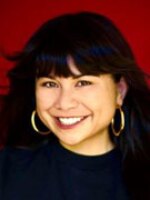California’s task force on reparations for Black Americans, a first in the nation effort, met Friday to discuss how they plan to engage and hear from different constituents.
All nine members of the task force agree that community engagement is central to their efforts to study and draft reparations proposals by the end of 2023.
There are, however, some differences among the task force members about who exactly should be included in the term “community” as they work to create an outreach strategy.
Rev. Amos Brown, a longtime civil rights activist and student of Dr. Martin Luther King, voiced his opinion that Black Americans that are descended from slaves should be the task force’s priority.
RELATED: California Task Force Convenes To Study Reparations For African Americans
“The people who are the subject of the offense of racism and injustice are the community,” said Amos. “Any other persons external to those that are victims will be invited as, in my estimations, consultants.”
Lisa Holder, a lawyer and counsel at the Equal Justice Society, believes that the task force’s work must center Black Americans but also extend to everyone in order to fulfill its mission to repair and heal.
“I think it’s very important to define the community broadly so that people feel involved in that healing process,” Holder said. “So that as a broader multicultural community we can come out of this restorative process more enlightened and prepared for true and authentic reconciliation.”
San Diego City councilmember Monica Montgomery Steppe is the panel’s San Diego’s representative. She urged her fellow task force members to get on the same page in regards to community engagement to make sure any plans they propose have a chance at making it through the state Legislature.
“Community is going to play a huge role in getting whatever we present across the finish line,” said Steppe.
The task force, which will spend two years studying how California might compensate African Americans for the ongoing impacts of slavery, was established last year after Gov. Gavin Newsom signed a bill authored by then-San Diego assemblywoman Shirley Weber. Newsom subsequently named Weber California’s first African American secretary of state.
In a nod to being responsive to the public’s input on matters moving forward, the task force voted on Friday to move the public comment period to the beginning of all future meetings and provide speakers with three minutes instead of two minutes.
Dr. Amos Brown said this seemingly small administrative decision is a significant step in showing people that this task force is going to be different.
“We are dealing with people who are excluded, so why do we have to be like the old system,” said Brown.
The task force will hold at least eight public hearings over the next two years, where they will hear testimonies from subject experts, community members and public comment on the legacies of slavery, including but not limited to the racial wealth gap, housing, criminal justice and health.
For more information on future meetings visit: https://oag.ca.gov/ab3121/meetings






